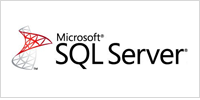Resilient Databases
Choosing appropriate database(s) is critical for fulfilling the vision of the product. We have worked from plain key/value based data stores to full fledged Graph and Time series databases. Database selection for a particular project depends on its Data Modeling requirements. At present, the most commonly used models are relational, document, and graph. We have worked in multiple databases from relational, document, and graph database categories.
Cloud Managed Relational Databases
Managed relational databases are popular nowadays. They shine from the cost, scalability, and maintenance perspectives. As the name suggests they are managed by the cloud providers and the team can concentrate on the business critical features and implementation. They provide the maximum configurable options and we, at 42Square, have experience in deploying development mode single instance databases to Zone-redundant high availability database clusters.
Tight Integration with other cloud services
Managed databases provide integration options with other cloud services. For example, AWS Lambda could be integrated securely with AWS RDS databases.
Virtual Network
As per the client requirements, we have isolated database by configuring Virtual Network in cloud. This satisfies the prerequisite for a secure system.Security and Encryption
Key based encryption and Transport Security Layer (TLS) enforcement could be done.Compliance
Relatively easy to setup industry standard compliance such as HIPAA, PCI DSS, FedRAMP and ISO
Quick Glance of Relational Managed Databases across Cloud Providers
All the major Cloud Providers have PostgreSQL managed database service. PostgreSQL ecosystem and plugins are powerful enough to satisfy most modern product requirements.






NoSQL Databases
MongoDB, first released in the year 2009, occupies the top list among the NoSQL databases world. This document and schema-less database provide easy data access with high performance. Mongo has a powerful query mechanism that is free from any sort of pre-defined schema. When it comes to data retrieval, MongoDB shines as it supports many data structures for indexing such as classic B-tree, two dimensional, and spherical GeoSpatial indexes.